2018.06.25 14:00 - 16:00
-
-
-
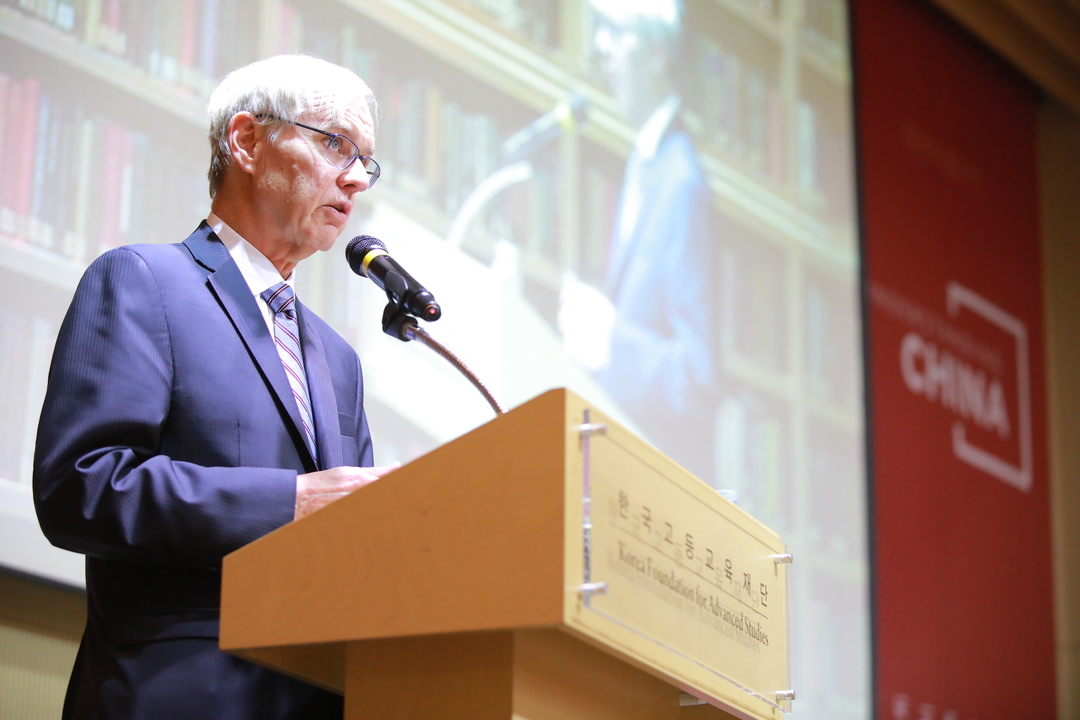
[CLS 33] Dr. Richard BUSH
#China
#Donald Trump
#Xi Jinping
-
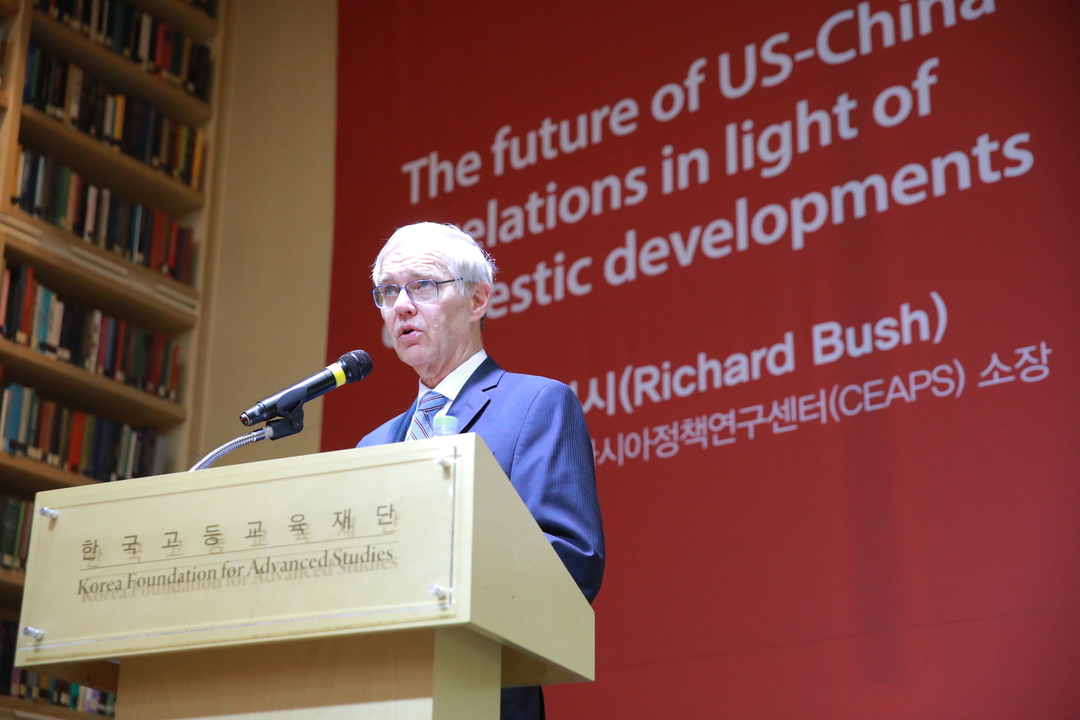
[CLS 33] Dr. Richard BUSH
#China
#Donald Trump
#Xi Jinping
-
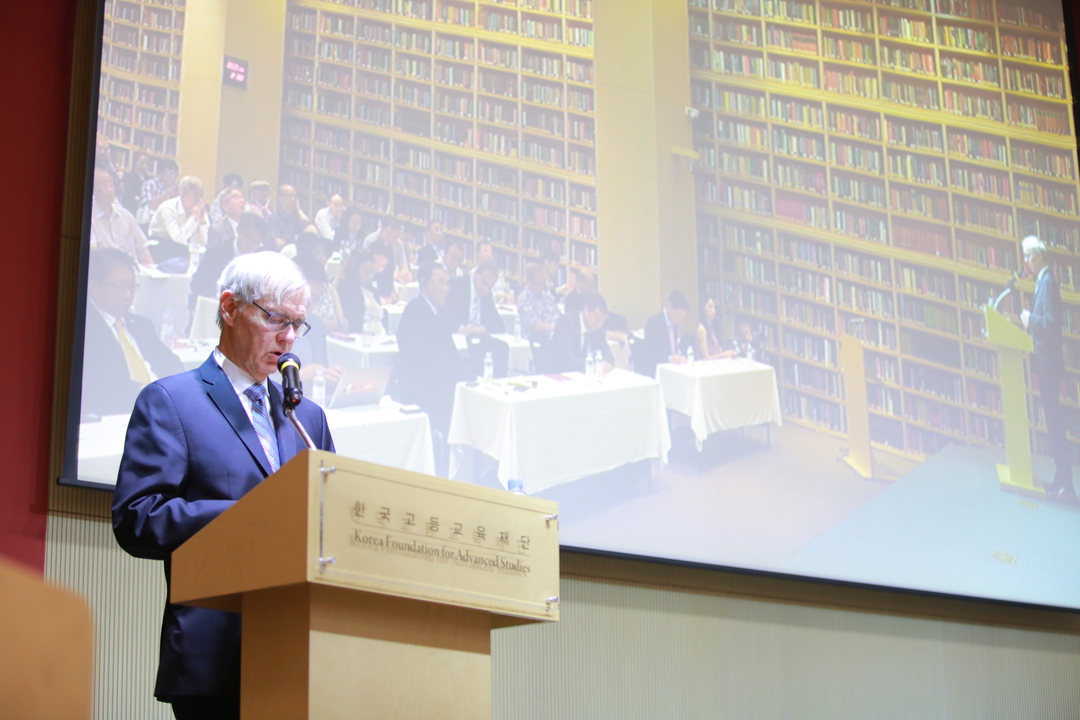
[CLS 33] Dr. Richard BUSH
#China
#Donald Trump
#Xi Jinping
-
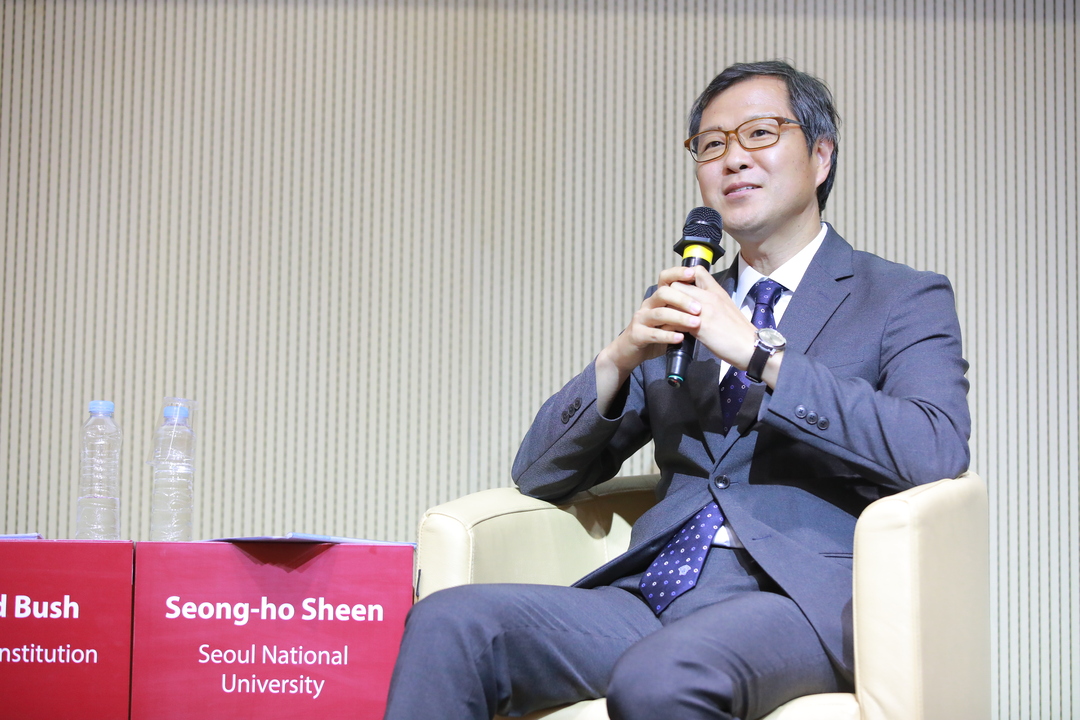
[CLS 33] Prof. SHEEN Seong-ho
#China
#Donald Trump
#Xi Jinping
-
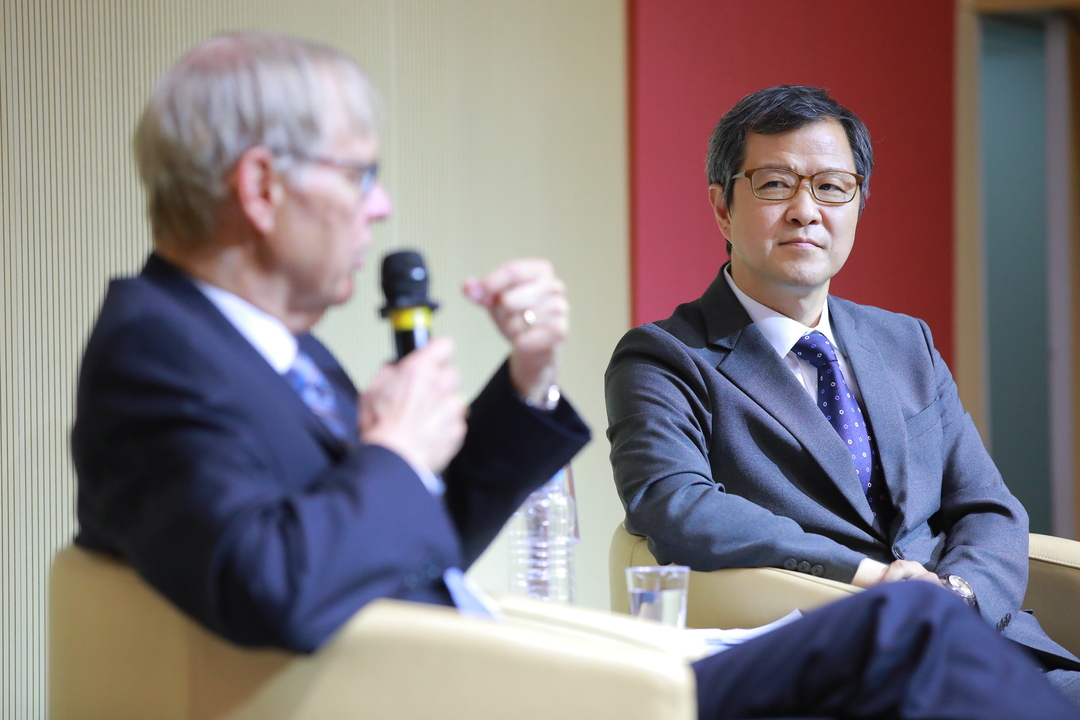
[CLS 33] Dr. Richard BUSH & Prof. SHEEN Seong-ho
#China
#Donald Trump
#Xi Jinping
Korea Foundation for Advanced Studies (KFAS) invited Dr. Richard Bush of the Brookings Institution to give a lecture on “The Future of US-China Relations in Light of Domestic Developments” on June 25th as the 33rd lecture of the KFAS China Lecture Series. Based on his extensive career dealing with China and Taiwan issues, Dr. Bush shared his view on the future of U.S.-China relations to some one hundred audience gathered at the KFAS Conference Hall in Seoul.
Dr. Bush started his remark by pointing to the rise of Messrs. Xi Jinping and Trump as one way of framing current US-China relations. The two leaders’ personalities and ambition certainly have an outsized impact on the bilateral relations, but he also noted that their rise is a manifestation of much larger forces.
He then offered some historical background. When trying to understand China’s foreign policy developments, it is important to understand the Chinese people’s profound remorse over their past weakness often referred to as ‘the century of humiliation (百年国耻),’ because it has had significant psychological consequence for China’s current behavior. President Xi’s call for ‘rejuvenation' is both tapping into and reinforcing this ethos of the Chinese people.
According to Dr. Bush, a seminal event in US-China relations is the publication of a 1967 essay by President Richard Nixon in Foreign Affairs. In that essay, Nixon, despite his strong anti-Communist background, surprisingly argued that “the world cannot be safe until China changes,” and that the US needs to induce that change. It was an offer of a bargain, Dr. Bush said, between China and the rest of the world. Nixon’s goal was to direct China away from its imperial ambition and toward domestic economic development.
Since the offer of this strategic bargain, which culminated in Nixon’s visit to China in 1972 and the normalization in 1979, China has adopted a foreign policy known as ‘Taoguang Yanghui (韬光养晦),’ as a result of which East Asia has remained more or less peaceful. There were moments of friction, such as the Tiananmen incident and the Taiwan Strait Crisis, but each time doubts were assuaged and the basic bargain was reaffirmed. He described the past two decades’ US policy toward China as ‘mutual strategic hedging,’ in which neither side fully trusted the intentions of the other but each side understood the benefits of mutual cooperation.
But things began to change around 10 years ago when we began to notice more competition and mistrust in the bilateral relations. The first such signal came with the 2008 global financial crisis, when Chinese leaders blamed the US for allowing such a crisis to happen by running large budget deficits. The second signal was found in China’s grand strategy: China began to seek a stronger Chinese presence within the First Island Chain to prepare itself for Taiwan contingency and other potential maritime frictions. The third signal was in the economic realm, where Chinese government imposed more restrictive rules toward foreign companies operating in China. The fourth signal was one of style, namely China turning more assertive or aggressive in foreign policy arena. The feud over the THAAD deployment in Korea was one example of China using its economic leverage to press its neighbors to agree to terms favorable to itself.
Regarding the recent discussion over a relative shift in power occurring between the US and China, Dr. Bush said that there is nothing mechanic in the outcome but the interaction involves choices by each on how to use its power. Even in a time of power transition, he added, it is not impossible to create zones of cooperation and reduce the chances of conflict.
He concluded his lecture by suggesting a mixed approach as the US’ China policy going forward, which includes both engagement and firmness in its dealings with China, with US alliances and partnerships in the region as an anchor. It is basically a return to strateg
Richard BUSH, SHEEN Seong-ho